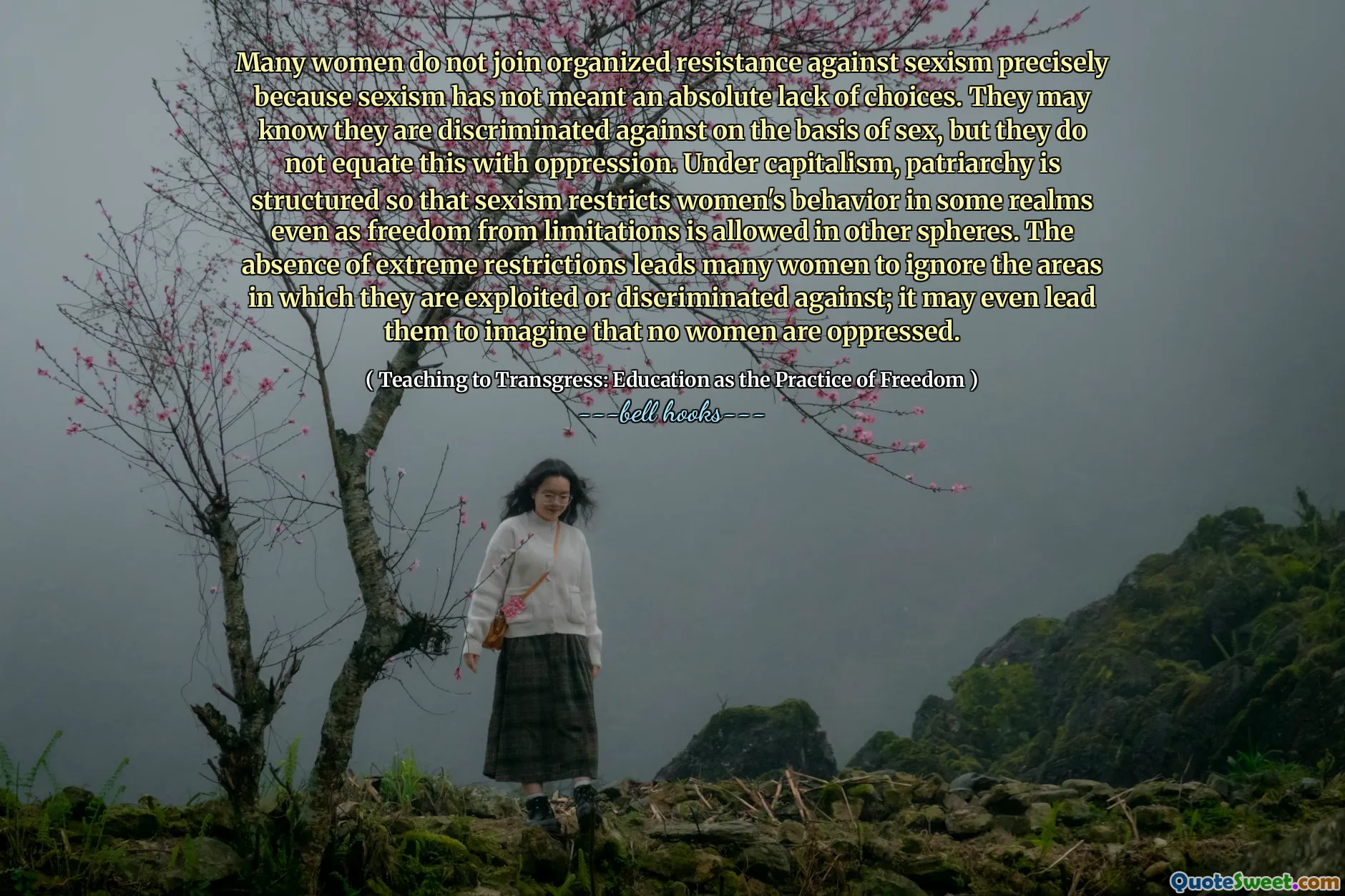
Many women do not join organized resistance against sexism precisely because sexism has not meant an absolute lack of choices. They may know they are discriminated against on the basis of sex, but they do not equate this with oppression. Under capitalism, patriarchy is structured so that sexism restricts women's behavior in some realms even as freedom from limitations is allowed in other spheres. The absence of extreme restrictions leads many women to ignore the areas in which they are exploited or discriminated against; it may even lead them to imagine that no women are oppressed.
This quote highlights a nuanced understanding of gendered oppression within a capitalist patriarchal framework. It challenges the simplistic notion that oppression is always overt and absolute, pointing instead to the subtle ways in which systemic inequalities function. The idea that women might be aware of discrimination yet not perceive it as oppression is thought-provoking, revealing how social structures can normalize and obscure exploitation. The concept that capitalism can permit certain freedoms while simultaneously restricting others aligns with theories of systemic control, where liberation in one sphere can mask control and exploitation in another. This recognition calls for a deeper reflection on how societal narratives around choice and freedom often serve to obscure ongoing inequalities. It suggests that awareness alone isn't sufficient; understanding the underlying structural forces that keep women in positions of marginality is essential for fostering genuine resistance. Such insights urge us to critically evaluate the frameworks within which empowerment is understood and to consider that liberation might require transforming societal structures, not just individual choices. This perspective encourages activism that goes beyond surface-level reforms, urging a focus on systemic change that addresses deeper inequalities embedded within economic and patriarchal systems. Recognizing these subtleties is crucial for developing more effective strategies for achieving social justice and gender equality.






